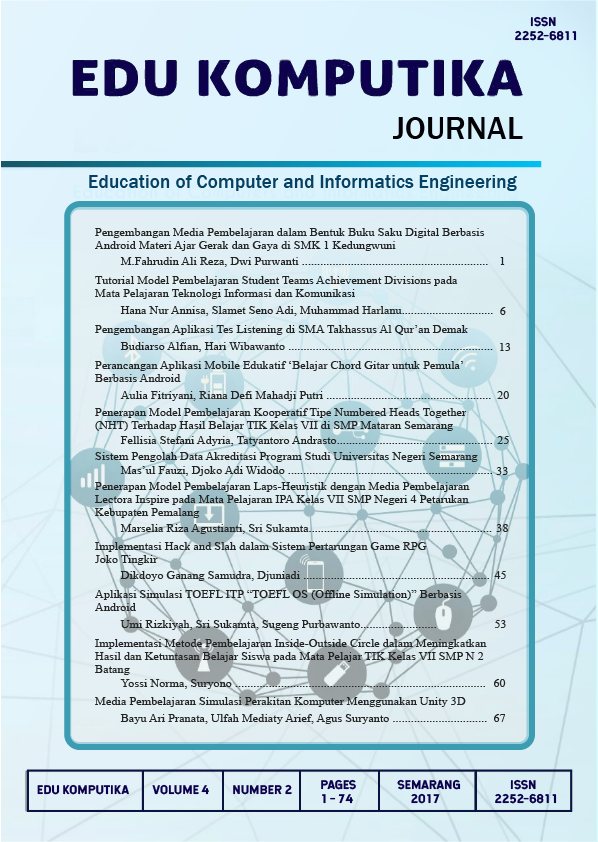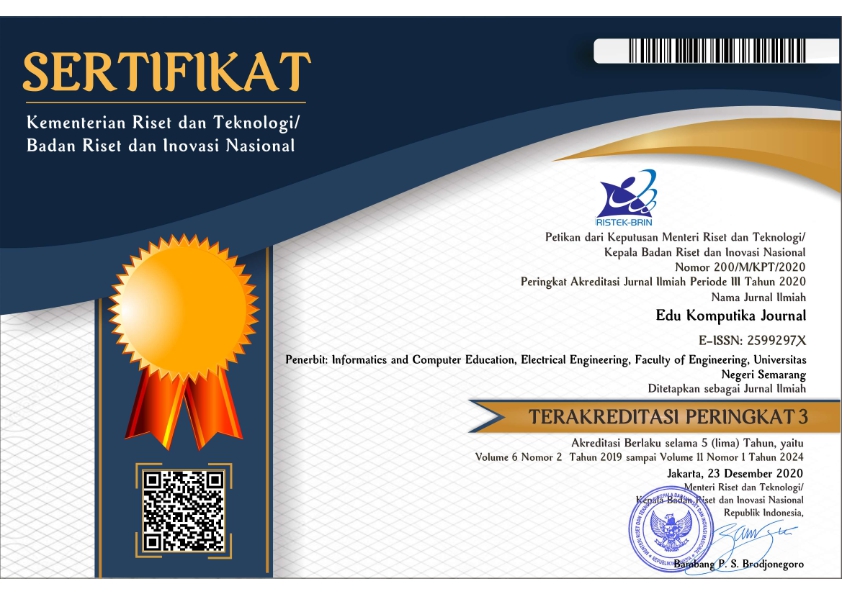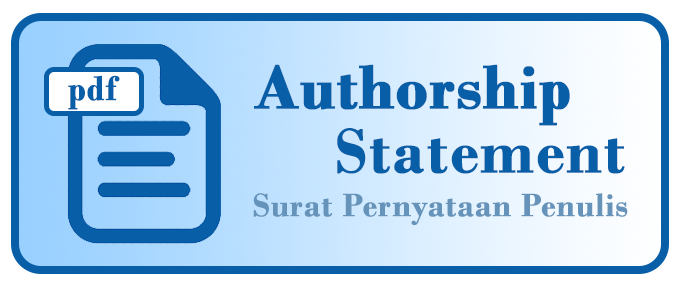Penerapan Model Pembelajaran Laps-Heuristik Dengan Media Pembelajaran Lectora Inspire Pada Mata Pelajaran Ipa Kelas VII SMP Negeri 4 Petarukan Kabupaten Pemalang
Abstract
The aims of the study are to determine the difference between learning outcomes and student activity that were learned by using logan avenue problem solving (laps)–Heuristik learning media with lectora inspire learning media. A quasi experimental was used as reasearch design in this study. The population of the study were students of the seventh grade of SMP Negeri 4 Petarukan in the academic year of 2015/2016. Samples were taken by using saturated sampling technique with a certain equality (matching). Those, there were two classes used, VII B as an experimental group and VII C as control group. Data analysis technique used the pre requisite test analysis including normality, homogeneity test, and hypothesis test. The results showed that the average of learning outcomes of the experimental group was 87.73 and the control group was 71.43. In addition, the average score of students’ active of the experimental group was 85% with good category. While the control group was 72% with good category. Hypothesis test results indicated that there were significant difference between learning outcomes and student activity of experimental group that was better than the control group. Based on the hypothesis test results, it can be concluded that the application of Laps-Heuristics as learning media with lectora inspire media was more innovative and interactive when applied in the learning process. In the process of learning, the teacher can develop further by adding more interesting illustration of this inspire lectora media for other subjects.
















